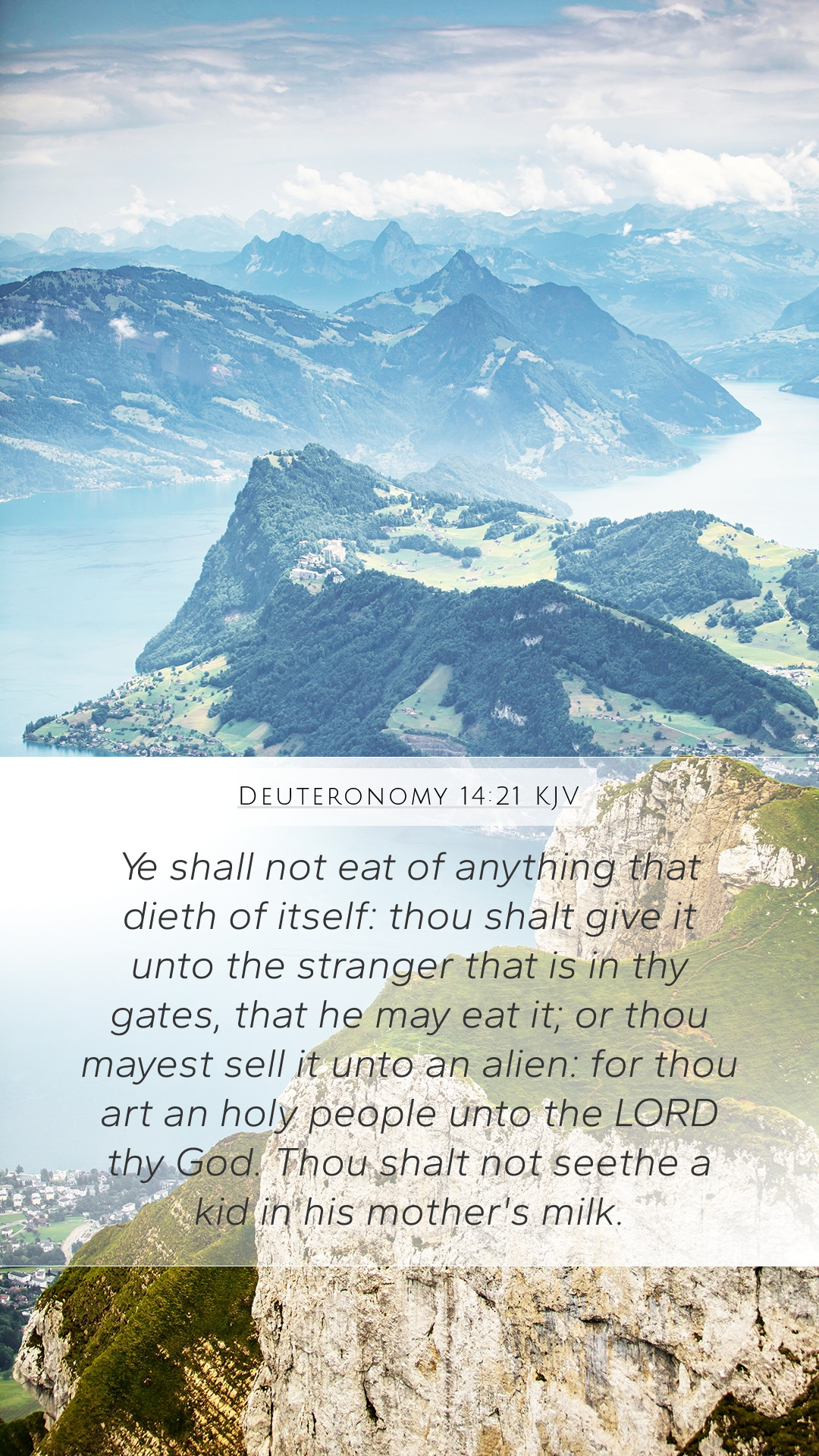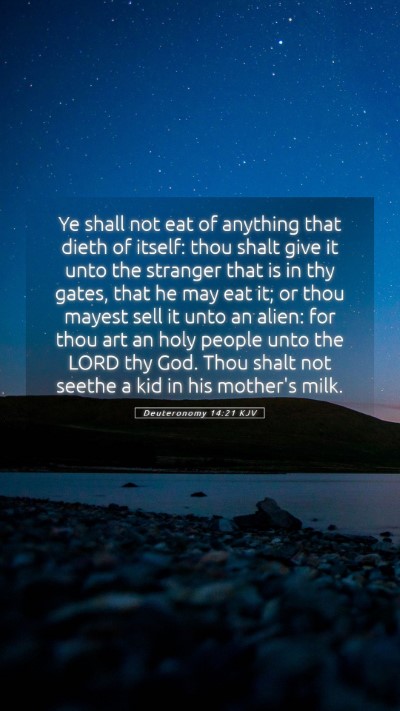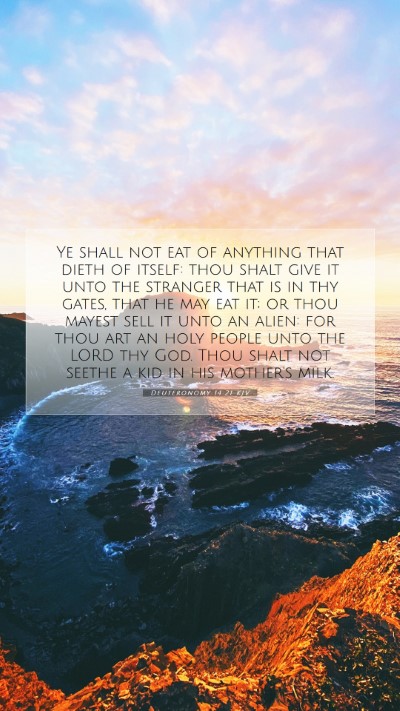Understanding Deuteronomy 14:21 - A Comprehensive Bible Verse Commentary
Deuteronomy 14:21 states, "You shall not eat anything you find already dead. You may give it to the resident alien who is within your towns, and he may eat it, or you may sell it to a foreigner; for you are a people holy to the Lord your God. You shall not boil a young goat in its mother’s milk."
Bible Verse Meaning
This verse offers key insights into dietary regulations for the Israelites, reflecting God’s holiness and the standards He sets for His people. It speaks to the broader themes of purity, community, and ethical behavior, fundamentally rooted in the covenant relationship between God and Israel.
Analysis of Deuteronomy 14:21
-
Holiness of God’s People:
Matthew Henry emphasizes that the command illustrates how God's chosen people are to maintain a unique identity by adhering to His laws. Their lifestyle, inclusive of diet, serves as a testimony of their covenant with God.
-
Dietary Regulations:
Albert Barnes adds that the prohibitions against consuming carrion reflect the need for purity and respect for life. It underscores a broader ethical stance about food consumption and respect for creation.
-
Interaction with Others:
Adam Clarke's commentary explains that permitting the sharing of these animals with foreigners or residents indicates inclusiveness without compromising holiness, reinforcing the necessity of reflecting God’s laws even in dealings with others.
-
Symbolism:
The latter prohibition against boiling a young goat in its mother’s milk could be seen as a call to avoid practices associated with pagan rituals. This command serves to remind the Israelites of their unique status among nations.
Deeper Theological Insights
The verse exemplifies the connection between divine law and daily living. It serves as both a practical guideline and a spiritual metaphor for separation from cultural impurities and ethical violations prevalent in other societies.
Significance of the Prohibitions
By outlining specific prohibitions, this passage not only directed the Israelites on what was acceptable but also instilled deeper lessons about reverence for God and moral integrity that transcends the explicit rules.
Application of Deuteronomy 14:21
For modern readers, Deuteronomy 14:21 encourages reflection on personal ethics, cultural influences, and the nature of holiness in daily life. Believers are encouraged to consider how their practices and lifestyle reflect their values and faith commitments.
Related Bible Verses
- Exodus 22:31: "You shall be holy men to me, and you shall not eat any flesh that is torn by beasts in the field; you shall throw it to the dogs."
- Leviticus 11:4-7: Discusses clean and unclean animals.
- 1 Peter 1:16: "For it is written, 'You shall be holy, for I am holy.'"
- Romans 12:1-2: Call to present oneself as a living sacrifice, reflecting holiness in life.
Conclusion
In summary, Deuteronomy 14:21 invites an examination of a believer's life in the context of Scripture, presenting a call to uphold the standards of holiness and ethical living that reflect a relationship with God. Such verses serve as vital components of Bible study resources and can lead to profound Bible study insights when explored in community or individually.


